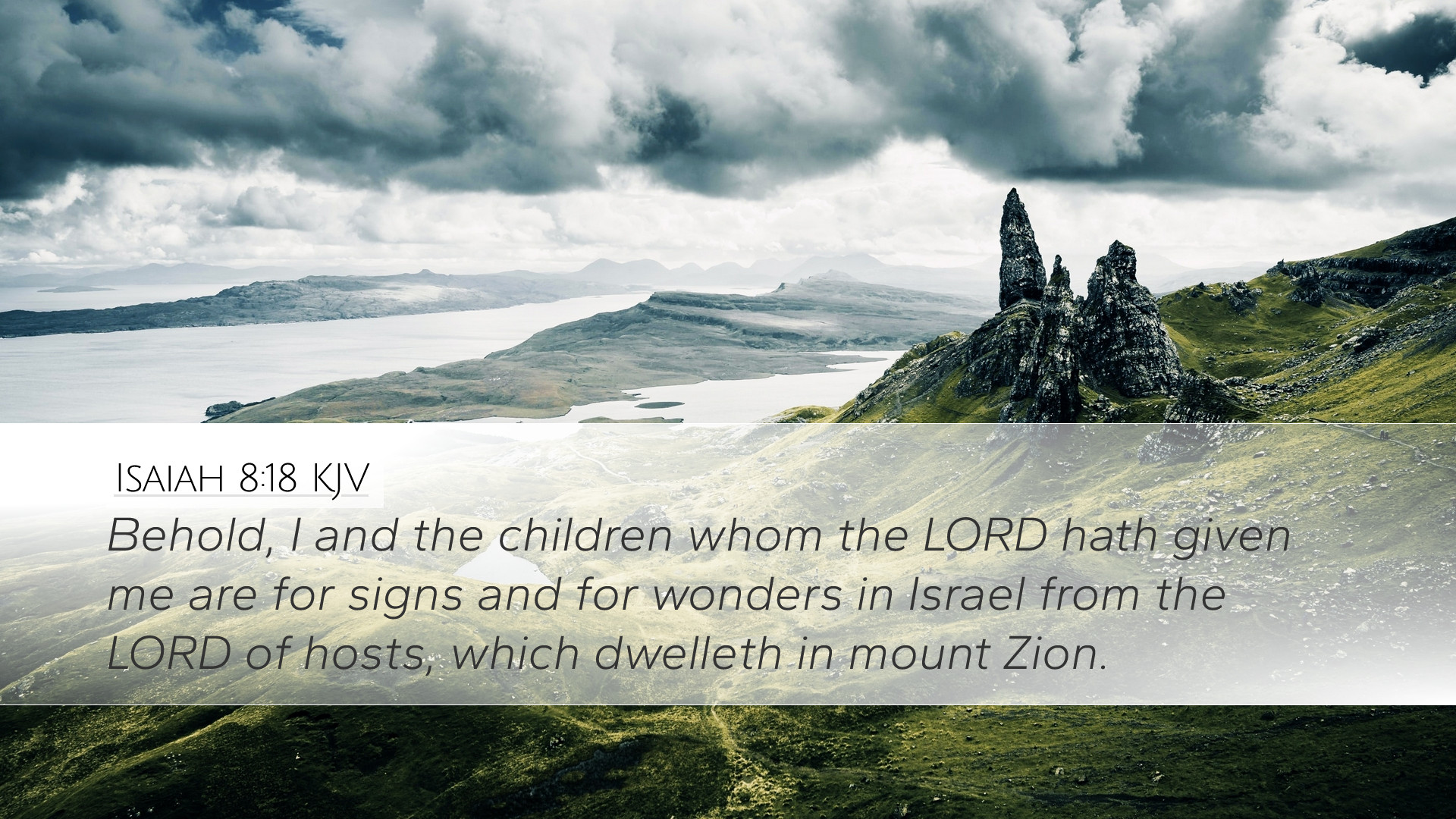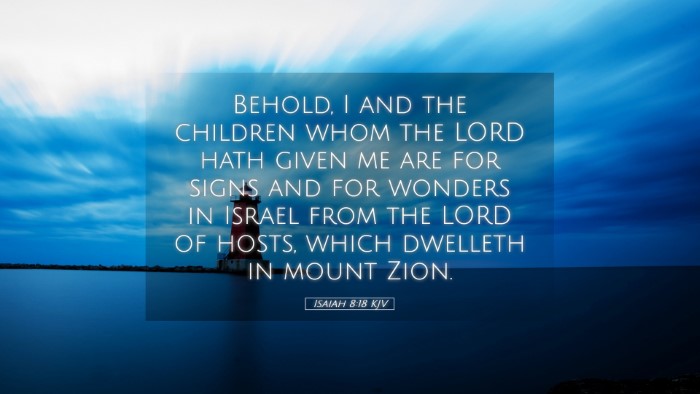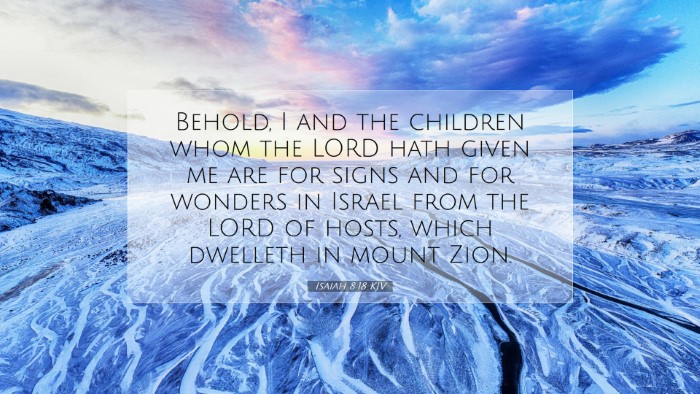Commentary on Isaiah 8:18
Isaiah 8:18 states, "Behold, I and the children whom the Lord hath given me are for signs and for wonders in Israel from the Lord of hosts, which dwelleth in mount Zion." This verse encapsulates a profound truth about the role of God’s messengers and the significance of their mission. Below is a synthesis of insights from notable public domain commentaries, providing a deeper understanding of this scripture.
Contextual Background
Matthew Henry emphasizes the importance of considering the historical context of the book of Isaiah. The prophet speaks during a tumultuous period for Israel, facing threats from surrounding nations. Henry highlights how this foreshadows God’s answer to His people’s plight through the coming Messiah, providing hope amid dire circumstances.
Adam Clarke points out that the children mentioned in this verse refer not only to Isaiah's biological children but also to all the faithful who follow God's ways. This expands the understanding of the 'children' as representatives of God’s covenant community.
Theological Significance
Albert Barnes elucidates that the phrase "for signs and for wonders" signifies that Isaiah and his children symbolize God’s presence and power among His people. They are signs of God’s faithfulness, embodying the message of hope and the eventual fulfillment of God's promises.
- Significance of Signs: Signs in the biblical context often point to deeper truths and serve as reminders of God's sovereignty and intervention. Barnes notes how these signs prefigure Christ’s coming, as He is the ultimate sign of salvation.
- Wonder Works: The concept of wonders reference the miraculous and extraordinary acts of God. This encourages the faithful that, although surrounded by strife, God will perform mighty works to deliver His people.
Exegetical Analysis
Examining the Hebrew text, Henry interprets "I and the children" to emphasize unity and collective purpose. The imagery of the family unit signifies a strong connection to God’s mission and the importance of generational faithfulness.
Clarke further elaborates that the phrase "from the Lord of hosts" points to the God of angelic armies, assuring believers that their cause is blessed and protected by divine authority. This acknowledgment reinforces the assurance of God's continued presence and support.
Applications for Today
The relevance of Isaiah 8:18 extends beyond its historical context into the lives of contemporary believers. The verse serves to remind pastors, students, theologians, and Bible scholars of several key principles:
- The Role of Faithful Witnesses: Just as Isaiah and his children were called to be signs, modern believers are called to reflect Christ’s light in their communities. Their lives should bear witness to the transformative power of God.
- Understanding Our Purpose: Every believer has a God-given purpose. This verse encourages the faithful to seek and embrace their roles within the larger narrative of God’s working in the world.
- Hope Amidst Trials: The assurance of God’s protection and divine purpose conveys a message of hope, especially relevant in times of trial. Believers are invited to rest in the promise that God is actively involved in their lives.
Conclusion
In summary, Isaiah 8:18 serves as a crucial reminder of the calls to both recognize our identity as God's children and accept the roles we play in His divine plan. The insights drawn from esteemed commentaries illuminate the depth of this scripture, encouraging believers to stand firm in faith, embody signs of hope, and bear witness to the wonders of God's presence.


